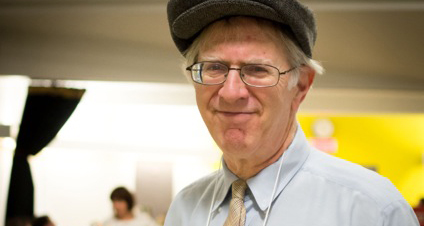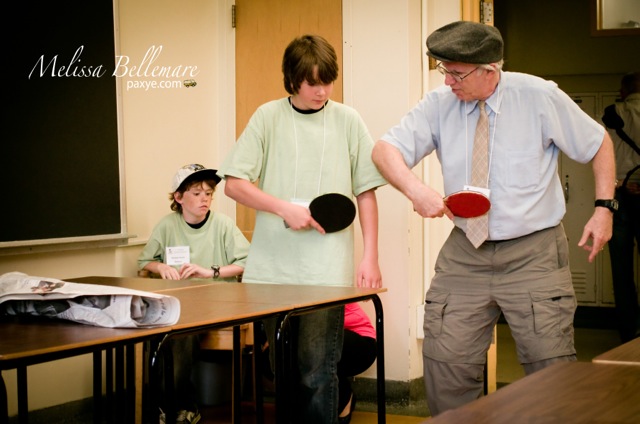
by Jerry Mintz
Communities are associations of human beings who share some common interest.
According to this definition, communities can manifest in endless configurations, and they do.
These are some of my communities:
- The AERO network
- Democratic schools community
- International Democratic Education Conference community
- Brooklyn Free School community
- Manhattan Free School Community
- Summerhill School Community
- Boys and Girls Club Community
- United States Association of Table Tennis Community
- Boys and Girls Club Table Tennis Club Community
- High School Alumni Community
- Shaker Mountain School Alumni community
- Goddard College Alumni Community
- Antioch New England Graduate School Community.
- People living in my house community
- Sri Aurobindo Ashram/orphanage Community
- Stork Family School community
- Coach Yuxiang Li table tennis club community
- Korean table tennis club community.
- Roslyn Country Club Community
In many cases there is a lot of crossover between the communities. You could probably outline these with a Venn diagram (overlapping circles). In many cases there is none and the people in them only know me in the context of their community. In other cases there is a very unexpected crossover.
As you can see, most of these communities are related to the work I do in alternative and democratic education. These tend to overlap, historically and currently. The biggest network is the AERO network. In the broadest sense this community has hundreds of thousands or perhaps millions in it. It not only includes people I have met personally, but also people I have met electronically and well as countless other who have come to the AERO network though our website but have never directly communicated to me. Nevertheless most of them have a sense of what AERO is, who I am, and would be comfortable contacting me when they need to. Conversely, there many who I have not heard from who have found enough information through the resources and articles on our website that they have been able to find what they were looking for: An alternative school for their child, a school to teach in which to teach, or even enough guidance to homeschool or start their own school or program.
Perhaps my biggest area of expertise is democratic education. Our definition of democratic education is simple: It is "education in which young people have the freedom to organize their daily activities, and in which there is equality and democratic decision-making among young people and adults," as quoted from AERO's Directory of Democratic Education. Put more simply, students need to have decision-making power about their own education and their own school while it is in process. The reason why I put it this way is because some people and organizations use the term "democratic education" when they mean they are training students to participate in democracy at some point in the future. This is in contrast to our definition. In fact, students at democratic schools have a vote that is equal to other students and staff members in decision-making.
This was the case at Shaker Mountain School, and is the case at Brooklyn Free School, Manhattan Free School, and remarkably, at the democratic table tennis club within the Boys and Girls Club where I volunteer. Our table tennis club of over 50, mostly minority students age six to sixteen, elects student supervisors as young as age eight, and runs the club six days a week. I am a volunteer there two days a week for two hours. Recently the club brought a team of twelve of them to play a match at Coach Yuxiang Li’s Club as two of my communities overlapped.
This is a good example of unexpected intersection of communities: One of the parents of one of my table tennis students was a homeschooler and needed help when there was a family crisis. She knew that I also worked with homeschoolers. She contacted me and for most of one school year her children spent much of the day at the AERO office and we had a homeschool resource center there!
I teach table tennis as I love the game and have developed the ability to teach beginners to moderate players. A good teacher will appreciate the moment when their students' eyes light up in accomplishment and understanding. I get to see that all the time when I teach table tennis, thus helping students become more confident in their ability to learn in a non-academic, non-threatening way. This is a skill I have applied in many of my communities. For example, I have taught table tennis in 21 countries, mostly places where I was doing an educational consultation or at an IDEC. I am official the "Very, very part-time table tennis coach" at Summerhill School in England. I teach there every year or two when I am on my way somewhere, most recently on the way back from a TEDx talk in Norway. I was honored that the US Olympic Committee presented me an award as Volunteer Coach of the Year.

I have never been to one community that I am part of: the Sri Aurobindo Ashram/orphanage. I met its founder, Ramchandra, in New York when he was fundraising for it. After running away from Nepal at twelve and educating himself in India, partly at the Sri Auromindo Ashram in Oroville, India, he returned to Nepal after 20 years. Discovering great poverty and many children on the street, he started the orphanage near Katmandu. I got him involved with the IDEC community and he spoke at the 2002 IDEC in New Zealand. We raised funds for Ramchandra, another teacher from the Ashram and one student to attend the IDEC we hosted in 2003. That teacher was his younger sister, now married and living with her husband and two year old daughter at my house, helping with AERO. I met several other students and staff members at subsequent IDECs in India and Australia. I taught table tennis to many of the students and donated funds to them so they could develop a table tennis program at the Ashram. I often Skype with them and we have continue to raise funds to support them. Many people from the AERO network have visited them. They keep on asking me to visit and I hope to do so when I have the opportunity.
I met the community of the Stark Family School of Vinnitsa, Ukraine at the first New Schools Festival of the Soviet Union in August, 1991. They were the first parent coop school in the Soviet Union. This was the first contact between Eastern and Western alternatives. We hit it off immediately, especially when they discovered that my grandmother was born in Ukraine. They said I was American only by accident of birth and was now one of their family. They even gave me a part in their play, the Goose that Lain the Golden Egg. I had to learn my lines in Russian!
I stayed in communication with them, helping them weather attacks from their government, which was taking 80% of their tuition in takes. At one point, shades of the cold war, we transmitted a grant of $10,000 we had arranged for them by physically strapping in on the body of the granddaughter of their math teacher when she was visiting New York, so she could sneak it into the country! I didn't get to actually visit the Stark School until I arranged for them to host the IDEC in 1998. In 2011 they insisted they pay my way to their 20th anniversary celebration in Vinnitsa.
Finally one of my most remarkable experiences with community:
When I was a student at Goddard College I took a course with Alan Walker called Community Laboratory. This course brought me into the local community. I started an amateur radio club, a 4H club that did cancer research, and a recreation center. Recently I received a letter in the mail from a woman from the community who had noticed an item about me and AERO in the Goddard College newsletter. She said, "I remember being very struck by your interest in the young people in Plainfield and how you considered starting a recreation center. I was really touched that someone would care about us village kids in that way. I felt the love in it. And for that reason I am writing to say THANK YOU, as it is people like you who helped make my childhood/girlhood a golden one…"
This letter from community involvement 50 years ago was completely unexpected and has deeply affected me. Community is forever.

















